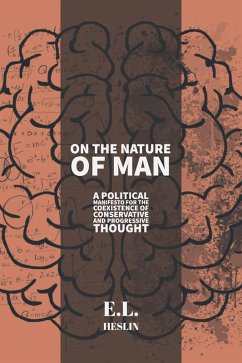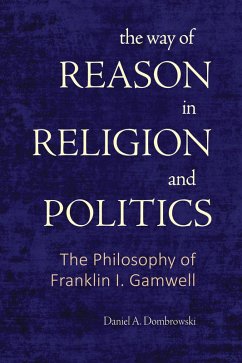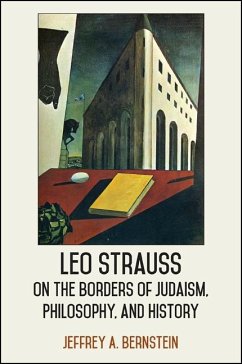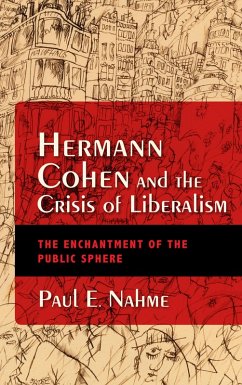
Progressive Minds, Conservative Politics (eBook, ePUB)
Leo Strauss's Later Writings on Maimonides
Versandkostenfrei!
Sofort per Download lieferbar
25,95 €
inkl. MwSt.
Weitere Ausgaben:

PAYBACK Punkte
13 °P sammeln!
Compelling account of Strauss's mature Maimonidean writings.Leo Strauss (1899-1973), one of the preeminent political philosophers of the twentieth century, was an astute interpreter of Maimonides's medieval masterpiece, The Guide of the Perplexed. In Progressive Minds, Conservative Politics, Aryeh Tepper overturns the conventional view of Strauss's interpretation and of Strauss's own mature thought. According to the scholarly consensus, Strauss traced the well-known contradictions in the Guide to the fundamental tension in Maimonides's mind between reason and revelation, going so far as to sug...
Compelling account of Strauss's mature Maimonidean writings.
Leo Strauss (1899-1973), one of the preeminent political philosophers of the twentieth century, was an astute interpreter of Maimonides's medieval masterpiece, The Guide of the Perplexed. In Progressive Minds, Conservative Politics, Aryeh Tepper overturns the conventional view of Strauss's interpretation and of Strauss's own mature thought. According to the scholarly consensus, Strauss traced the well-known contradictions in the Guide to the fundamental tension in Maimonides's mind between reason and revelation, going so far as to suggest that while the Jewish philosopher's overt position was religiously pious (i.e., on the side of "Jerusalem"), secretly he was on the side of reason, or "Athens." In Tepper's analysis, Strauss's judgments emerge as much more complex than this and also more open to revision. In his later writings, Tepper shows, Strauss pointed to contradictions in Maimonides's thought not only between but also within both "Jerusalem" and "Athens." Moreover, Strauss identified, and identified himself with, an esoteric Maimonidean teaching on progress: progress within the Bible, beyond the Bible, and even beyond the rabbinic sages. Politically a conservative thinker, Strauss, like Maimonides, located man's deepest satisfaction in progressing in the discernment of the truth. In the fullness of his career, Strauss thus pointed to a third way beyond the modern alternatives of conservatism and progressivism.
Leo Strauss (1899-1973), one of the preeminent political philosophers of the twentieth century, was an astute interpreter of Maimonides's medieval masterpiece, The Guide of the Perplexed. In Progressive Minds, Conservative Politics, Aryeh Tepper overturns the conventional view of Strauss's interpretation and of Strauss's own mature thought. According to the scholarly consensus, Strauss traced the well-known contradictions in the Guide to the fundamental tension in Maimonides's mind between reason and revelation, going so far as to suggest that while the Jewish philosopher's overt position was religiously pious (i.e., on the side of "Jerusalem"), secretly he was on the side of reason, or "Athens." In Tepper's analysis, Strauss's judgments emerge as much more complex than this and also more open to revision. In his later writings, Tepper shows, Strauss pointed to contradictions in Maimonides's thought not only between but also within both "Jerusalem" and "Athens." Moreover, Strauss identified, and identified himself with, an esoteric Maimonidean teaching on progress: progress within the Bible, beyond the Bible, and even beyond the rabbinic sages. Politically a conservative thinker, Strauss, like Maimonides, located man's deepest satisfaction in progressing in the discernment of the truth. In the fullness of his career, Strauss thus pointed to a third way beyond the modern alternatives of conservatism and progressivism.
Dieser Download kann aus rechtlichen Gründen nur mit Rechnungsadresse in A, D ausgeliefert werden.













